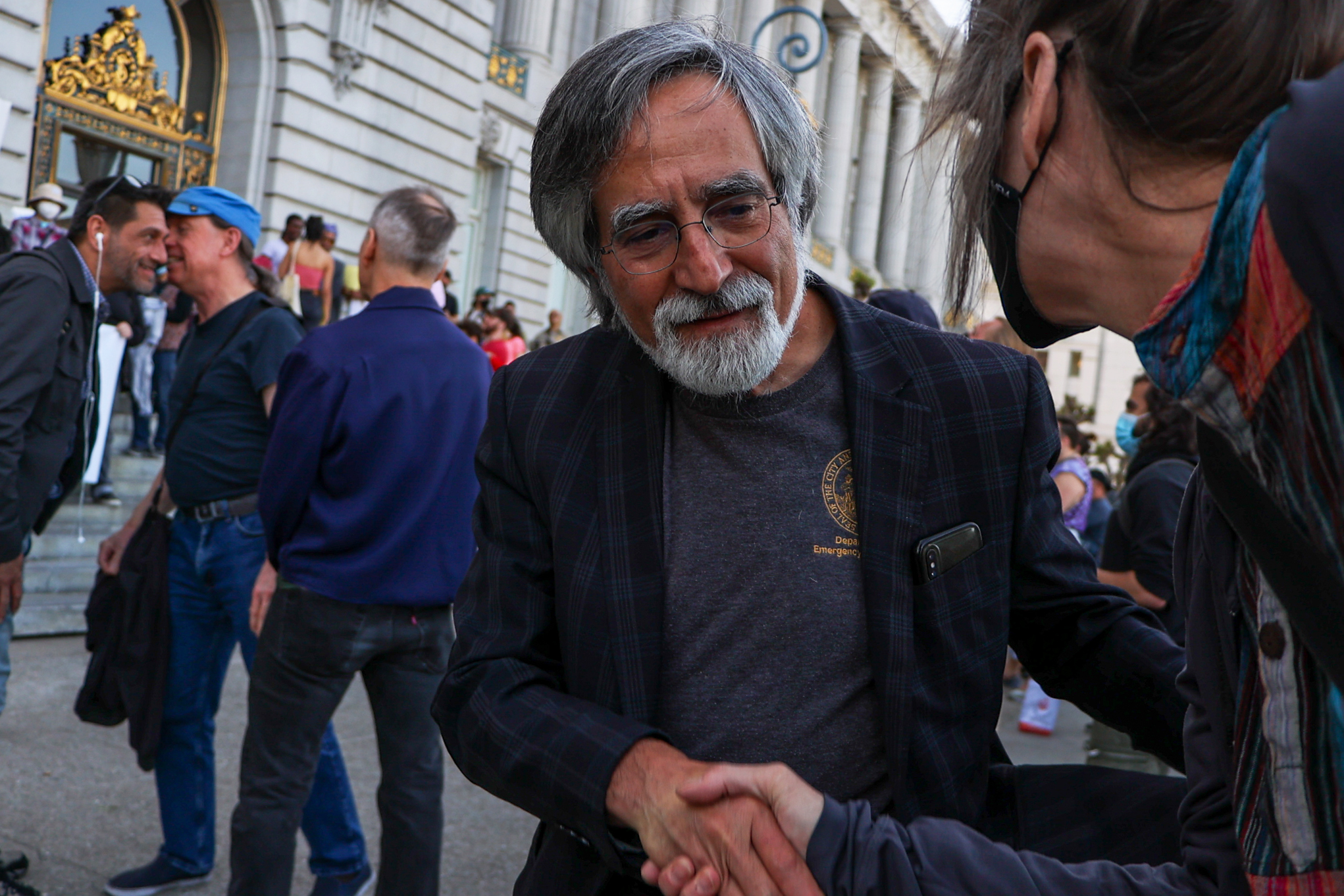San Francisco is entering uncharted territory to recoup more than $23 million in unallowable profits that city officials say waste giant Recology shouldn’t have earned from its lucrative garbage monopoly in the city.
Supervisor Aaron Peskin announced legislation Tuesday urging the city Controller’s Office to draft new rates that Recology can charge San Francisco customers for garbage collection.
According to Peskin, this marks the first time in nearly a century that the city—rather than Recology or its predecessors—plans to initiate rate-setting. The supervisor hopes to offset a billing increase due in July by directing the controller to kickstart the process now.
Peskin’s legislation comes a day after Controller Ben Rosenfield concluded that Recology netted $23.4 million in “excess profits” between 2018 and 2021—largely because the firm spent less on its workforce than anticipated.
“This begins the process of recapturing those revenues for SF ratepayers,” said Peskin, who joined Mayor London Breed in asking the controller to submit a new rate application as soon as possible.
Recology disputes the figure.
The firm acknowledged making $19 million in excess profits but argued that it’s entitled to keep what it makes above the allowable margin, according to a report the controller released on its findings.
On Monday, Rosenfield called on San Francisco to begin a new rate cycle as soon as possible and urged Recology to put $23.4 million into a “balancing account” to offset upcoming rate hikes.
The multimillion-dollar figure comes on top of the nearly $95 million in overcharges and interest that Recology agreed to repay San Franciscans last year to settle a lawsuit from former City Attorney Dennis Herrera, who filed the case after a federal probe into former Public Works head Mohammed Nuru embroiled Recology.
The firm has since admitted it tried to bribe Nuru by making a steady stream of donations on his behalf.
Recology enjoys a monopoly on trash pickup in San Francisco under a voter-approved ordinance from 1932 that also put the public works director in charge of setting rates.
Next month, voters will decide whether to amend the ordinance by replacing the public works director with the controller as the key player in the process. Under Proposition F, the controller would be in charge of monitoring prices and proposing new prices to a body known as the Rate Board. Currently, the Rate Board exists but only gets to weigh in when a rate decision is appealed.
Peskin said he expects the next rate cycle to play out under the new structure if voters pass Prop. F in June. While Recology initially spent nearly $400,000 to place a competing proposition on the ballot, the firm quickly dropped the effort and now endorses the June measure.
Editor’s Note: A previous version of this story said Recology charged local ratepayers $23.4 million more than allowed. This story has been updated to clarify that Recology earned $23.4 million in unallowable profits.
